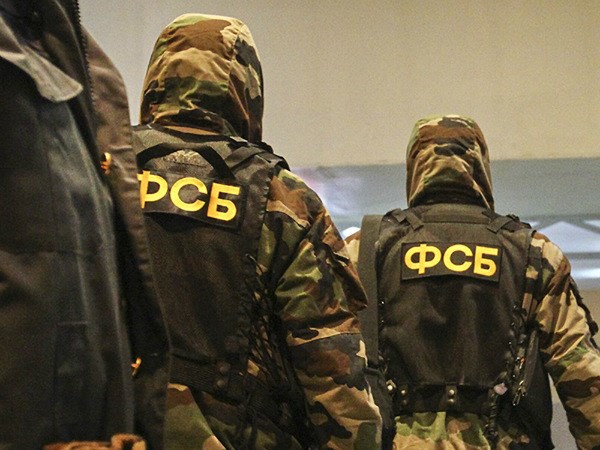Russian FSB announces arrest of 'SBU agent' in Crimea
The Russian Federal Security Service (FSB) announced that on August 12, Ukrainian citizen Hennadiy Limeshko was arrested while attempting to damage the power line between Sudak and Novyi Svit. The FSB report calls him an SBU (Security Service of Ukraine) agent, sent to Crimea to carry out acts of sabotage, as reported on the FSB website.
He was allegedly found in possession of two TNT type 200 blocks and a ZTP-50 capped fuse, a mechanism for detonating the explosive device, an RGD-5 grenade with a twisted primer, a container with a flammable compound, a hand saw (to cut the power line’s wooden support) and a digital camera “for documenting the sabotage activity and subsequent reporting on it to SBU supervisors”.
The report claims that Limeshko is a native of the Kharkiv province who served previously in the Ukrainian Armed Forces stationed in the Donbas as a senior intelligence official in a military unit , and that he arrived in the Crimea on 9 August 2017.
According to the Russian FSB, he was ordered to damage the Sudak – Novyi Svit power line, burn forested areas in the Sudak – Rybachye – Alushta region, create a rock fall to block the Sudak – Novyi Svit motorway, and burn one of the communal farming sites in the Rybachye settlement.
Sudak is currently one of the most popular resorts in the Crimea. On account of the far lower prices in comparison to the southern Crimean coast and its proximity to the Kerch crossing, Sudak has many more holidaymakers than other resorts.
The FSB later posted a video clip of Limeshko’s arrest. The video shows law enforcement officers confiscating two TNT blocks, a grenade, a telephone, a saw, and a camera from Limeshko. Cigarettes and adhesive tape were also taken out of his pack. The video shows Limeshko’s Ukrainian passport, with a mark showing entry into Russia on 9 August 2017 through Belarus. Limeshko’s intended destination is indicated as Sudak. In the clip, the arrested man says that he was told to “take out the power pylon”.
On August 14, the Simferopol Kyiv District Court incarcerated Limeshko for two months, until 13 October 2017, the court’s website states.
Limeshko is suspected according to sec. 1 art. 223.1 of the Russian Criminal Code (RCC), which implies responsibility for the illegal preparation of explosive substances and explosive devices.
This is not the first time that the FSB has arrested “saboteurs” in Crimea. There have been two such imprisonments in the last month. Redvan Suleymanov received one year and eight months in a penal colony for a “deliberately false report regarding an act of terror, resulting in major damage” (sec. 2 art. 207 of the RCC), and Alexei Stogniy was given three and a half years according to sec. 1 art. 222 of the RCC (illegal acquisition, transfer, distribution, storage, transportation or wearing of a weapon, its basic parts, ammunition) and sec. 1 art. 223 of the RCC (illegal preparation, reworking or maintenance of a firearm and ammunition).
The “Crimean saboteurs” case includes several criminal cases, although the articles according to which the detained Ukrainians are charged vary in each case. According to a Crimean human rights group, a total of 9 people were arrested in 2016: Yevgeniy Panov, Andrei Zakhtei, Redvan Suleymanov, Vladimir Prisich, Dmitry Shtyblikov, Alexei Bessarabov, Vladimir Dudka, Gleb Shabliy, and Alexei Stogniy.
